🔥Welcome to Volume #00084!🔥
I’m Christian Champ. This is ☯️The Middle Way Newsletter ☯️. It is a place where I write, explore, share, and invite you along for the journey.
If you enjoy the newsletter, please share it with your friends.
How to Cultivate Endings That Lead to New Beginnings
At the end of last month, I hung up the asset management jersey after 22 years.
I walked out of the office for the final time, feeling excited and melancholy.
As I hit the elevator button, I already missed my team and the folks I've worked with for a long time.
Quitting is hard. Leaving a good team is even more challenging.
As the elevator descended, I felt the pressure release, knowing it was time for the next phase.
The investing world is a fascinating place.
Looking at thousands of companies over the years, working with a group of highly skilled and talented people debating investing ideas provides a fertile ground for learning and growing.
This training ground provided growth in many different areas. You learned how to invest, judging the attractiveness of businesses and management teams.
Over the years, I've run teams, fundraised, helped hire board members and management teams, and served on boards. There is only gratitude in participating in such a wide range of experiences.
Working with people that push you and make you better is a crucial part of the game of investing.
Finding Our Favorite Parts
Over time, I realized my favorite part of the journey was helping people level up and unlock their potential.
There is nothing like watching your teammates step up and hit new peaks.
Strategy and vision is my second favorite part. Today we are here, and tomorrow we want to be over here. It's storytelling, creating culture, and harnessing the talent around us that makes that strategy and vision successful.
The unlocking of the strategy and the vision is OUR WHY.
We know when this happens because it is a Flow State moment. Everything in life makes sense, and we get clarity around what we spend our days doing.
For the past couple of months, I ran into this quote by Joseph Campbell multiple times.
"If you can see your path laid out in front of you step by step, you know it's not your path. Your own path you make with every step you take. That's why it's your path."
As my company went back to the office and my travel calendar picked up, I realized the time for a new pathway had arrived.
Thinking about work in terms of games and levels, the last level I felt like I wanted to play was fundraising. 350+ zoom calls and in-person meetings later, a successful $300m++ raised in a couple of quarters, and I played enough of that level. The Zoom part was great, but the airplane part was less so.
If I sat in my current seat, I knew the path. This path grew less attractive with each passing year.
We need to know when to get out of the car and get in a new one.
I wanted a more active role in driving better outcomes for people and companies.
I still wanted to invest, but you can always do that on the side.
How Do We Prepare for a New Path
We start with getting ready to make a jump by seeing what excites us. We focus on adding new skills to match up with that excitement.
Where do our existing skills and talents overlap with our potential futures? What do we need to add to the mix because it brings us closer to our new paths?
My head looked up for a new path before work from home became a thing.
Running free experiments creates the testing ground for our future possibilities. We get to try on clothes and see how they fit.
Do they serve our mission?
Do they interest us and drive our curiosity?
Do we make a difference?
My ethos became: how can I help others? How do my experiences and skills match up with the needs of others? How do I bring that together?
This understanding led me to focus more on coaching.
I signed up for coaching training and got reps coaching people. In the background, I worked on advising companies where I invested with my PA ( personal account as we call it in the investing world to differentiate from client funds) and helped coach the CEOs and decision-makers.
I worked on coaching the team of analysts I oversaw at the office. I worked on offering coaching moments to friends, acquaintances, mentees, mentors, and coworkers. I coached people through career decisions and salary negotiations and helped them find more flow.
I leaned in, ready to listen, learn, and try to help.
COVID allowed me to run the work from home experiment. I always believed that I'd love working from home, and yes, it exceeded expectations.
I liked seeing my coworkers, but I like seeing my kids in the morning and being able to take them places in the evening.
Being in service to my family while my kids are little is another part of my path.
It all came back to that feeling of helping people level up and accomplish more, both on an individual level and a company level.
What trade-offs should we make?
We play with our choices and trade-offs, exploring other alternatives and doubling down on our whys. We get to ask if our actions serve our goals and missions.
The main question I tried to answer is how do you create the environment, culture, and situations to drive the growth that people want.
When you can't control the first two, how do you overcome poor leaders, less-than-ideal environments, and cultures that might push against what you are trying to accomplish?
The goal is to help folks level up and unlock more of our abilities.
When you show care, create tight supportive feedback loops and create a culture of trust, people amaze you with what they accomplish.
In the near term, I'm joining a coaching organization and continuing to advise companies and make investments.
If you are interested in discovering the power of coaching, please reach out.
📓Things to Think About📓
How to Find a Job in Investing by Andrew Walker
Andrew’s big idea to find a job in investing is to start a substack using a pseudonym and start writing.
If investing isn’t your thing and it is something else, you can follow the same idea and apply it to that other thing.
My advice for someone in each of those three “buckets” is generally different, but the number one piece of advice I give to anyone is the same: start an investing substack under a pseudonym. Stick with it, and publish one article a week for ~6 months.
Why’s that my advice?
My friend Byrne from the Diff had an analogue that stuck with me a few months ago: your life is a call option. He was using it in a different context than I am here, but I think it’s particularly apt here. If you’re looking for a career in investing, I’d suggest that starting a Substack is the best call option you can “buy”. The possibilities are endless, but they’re almost literally all good.
Byrne Hobart, from the Diff (a highly recommended investing newsletter of which I’m a paid-up subscriber), did not earn a college degree. Instead, he took the CFA and worked for Steve Cohen at SAC Capital.
He created a call option and watched it end up “in the money”. As a CFA charter holder, I always defer to the power of the CFA exam.
It’s also a way to apply both Tim Ferriss’ “minimum effective dose” framework and Nassim Taleb’s “Barbell Portfolio,” of owning lots of low-risk assets and a small smattering of asymmetric bets. A small dose of extremes is better than a constant trickle of barely-anything.
The CFA exams quiz you on many topics, but one they’ve somehow missed is the economic concept of signaling. A question they might have asked: does an academic credential like a bachelor’s degree or a CFA designation:
a) have no effect
b) confer valuable skills
c) signal valuable traits
Nora Bateson on People Needing People
How do we connect with each other in a world that continues to disconnect? The pandemic further exacerbated this issue.
Now what? People need people and people have no idea how to live with people. The ways in which community was generated in the past have slipped away. The farm, religious ceremonies, moving water, taking care of animals, making music, raising children, tending the elderly … these things have changed shape.
We need to remember to zoom in and zoom out; everything is connected. Where we need to go is to find our way together with flexibility and openness.
That flexibility must be in each of us, not the plan itself. The map is not fluid, the territory is. Nourishing flexibility that we do not yet know we will need is at the core of this work. People need to find their own way- together.
Betty Read Soskin Started at 84 and Retired at 100
Betty played her last act very well. Starting at age 84 and making a difference for 16 years.
Before joining the NPS, Soskin participated in scoping meetings with the City of Richmond and the NPS to develop the general management plan for Rosie the Riveter/WWII Home Front National Historical Park. She worked with the NPS on a grant funded by PG&E to uncover untold stories of African Americans on the Home Front during WWII, which led to a temporary position working with the NPS at the age of 84.
"Being a primary source in the sharing of that history – my history – and giving shape to a new national park has been exciting and fulfilling,” said Soskin. “It has proven to bring meaning to my final years.”
🎧Things to Listen, See, and Watch 🎧
Jocko reminds us that all life is a trade-off. Every “solution” we choose means that we give up something else. This isn’t a good or a bad thing; it is the thing.
“There are no solutions, only trade-offs. You try to get the best trade-off you can get.”
You need to prioritize and execute BUT need to know what matters to you and what you are trying to maximize/optimize for.
Make the right trade-offs to maximize what you want, but make sure to know what you want.
Know what you want!
Mr. Beast visits the Joe Rogan Experience for a captivating conversation around the path and success of his success with YouTube.
Mr. Beast started YouTubing at age 11 and became one of the top YouTubers in the world at age 23. He has 90M+ subscribers and videos with over 220M views (Netflix has 220M subscribers).
💗Find Things to Fall in Love With
His first video had 20,000 views, and he fell in love
Hated school and spent as much time doing videos as possible chasing his love
Spent his time at community college doing videos in his car until he dropped out
🏋️Daily Practice
Age 11 to today (12 years), did the work every day
Figured out what he does well and what people enjoy
Focused on pacing, framing, coloring, etc. to see how that changes the results
Spent 40,000 hours and continues to spend more on YouTube and idea creation
📈Network Effects
Daily mastermind with 1,000 other YouTubers breaking down all the specifics
Sharing and learning and growing from each other every day… creates 10x type results
Currently works with 100 folks who are the best creators and continue to learn at 5x from each other
All amazing people on the time who are willing to learn, adapt, and figure things out —> a huge ecosystem for learning and creating
☀️Vision / Long Term Thinking
Invests back in the business
Spent $4M on the Squid Games Vidoe, which got 220M views
Purchased $11M in space and equipment in NC to make content
100 employees all rowing together and growing together
Always trying new things and creating more and more ideas
“Do interesting Shit. Innovate. Push Yourself”
A video goes from 1m views to 3m views because of Better IDEAS
Ideas are key, and then executing on those ideas… Need to always be intaking inspiration
He lives small in a modest house and buys nothing expensive; everything goes back into growing the business or to charity
🙌Give Back / Pay It, Forward
Helps others by sharing his knowledge, loves seeing other people succeed
Runs a food pantry to “do good in the world” and they stock it with great food
When is it too late to start?



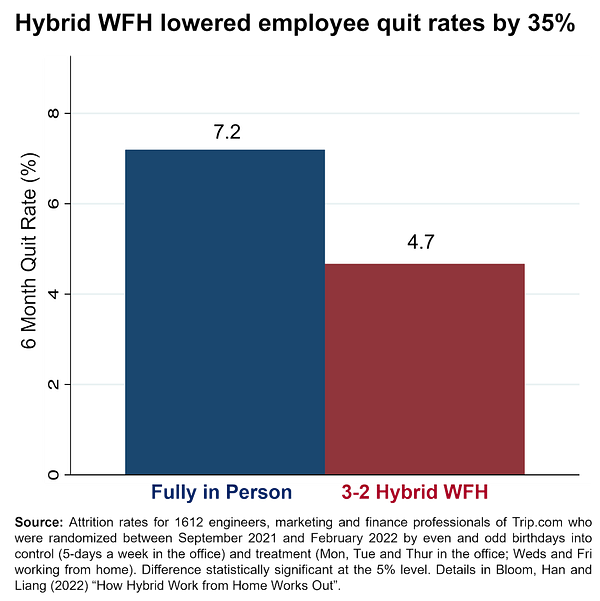

📚 Books to Read 📚
Storywatch by Matthew Dicks (Amazon)
Matthew is a 36-time Moth Slam Monthly Champion who takes us behind the scenes on how to tell compelling stories.
I’m always trying to improve my storytelling, and that journey includes taking classes at Second City in Chicago and hours and hours at Toastmasters.
I wish I had read this book earlier in my storytelling journey and in my life.
Below is my Twitter thread on the book…

💣Words of Wisdom💣
"However, the single biggest threat to our own wellbeing tends to be ourselves. Without even giving it much thought, we allow our short-term decisions to override what’s best for our long-term wellbeing." (Tom Rath, Jim Harter, Wellbeing)
"Its concern is the edge, and the making of a form out of the formlessness that is beyond the edge." (Mary Oliver, Upstream)
"He also talked about the importance of second acts and suggested that everyone should have some hobbies that might open up into new lines of work." (John Markoff, Whole Earth)
"Fault is past tense. Responsibility is present tense. Fault results from choices that have already been made. Responsibility results from the choices you’re currently making, every second of every day." (Mark Manson, The Subtle Art of Not Giving a F*ck)
"A well-designed life is a life that makes sense. It's a life in which who you are, what you believe, and what you do all line up together.” (Bill Burnett and Dave Evans, Designing Your Life)
"If one only wished to be happy, this could be easily accomplished; but we wish to be happier than other people, and this is always difficult, for we believe others to be happier than they are." (Kate Fagan, What Made Maddy Run)
"If you think you have a story, ask yourself: Does it contain a five-second moment? A moment of true transformation? Your five-second moment may be difficult to find. You may have to dig for it." (Matthew Dicks and Dan Kennedy, Storyworthy)
"A more interesting question, a question that most people never consider, is, “What pain do you want in your life? What are you willing to struggle for?” Because that seems to be a greater determinant of how our lives turn out." (Mark Manson, The Subtle Art of Not Giving a F*ck)
“The most successful managers,” Peters told me, “are those who are unwilling to tolerate the negative stuff.” (George Leonard, Mastery)
"Lost, these people I talked to helped me understand, was mostly a state of mind, and this applies as much to all the metaphysical and metaphorical states of being lost as to blundering around in the backcountry." (Rebecca Solnit, A Field Guide to Getting Lost)
🙏Thanks for reading🙏
What do you want to dip your toes into? What skills do you want to add to the toolbox?
Any thoughts or comments, please share!
Namaste,
Christian
Last day at the office picture…






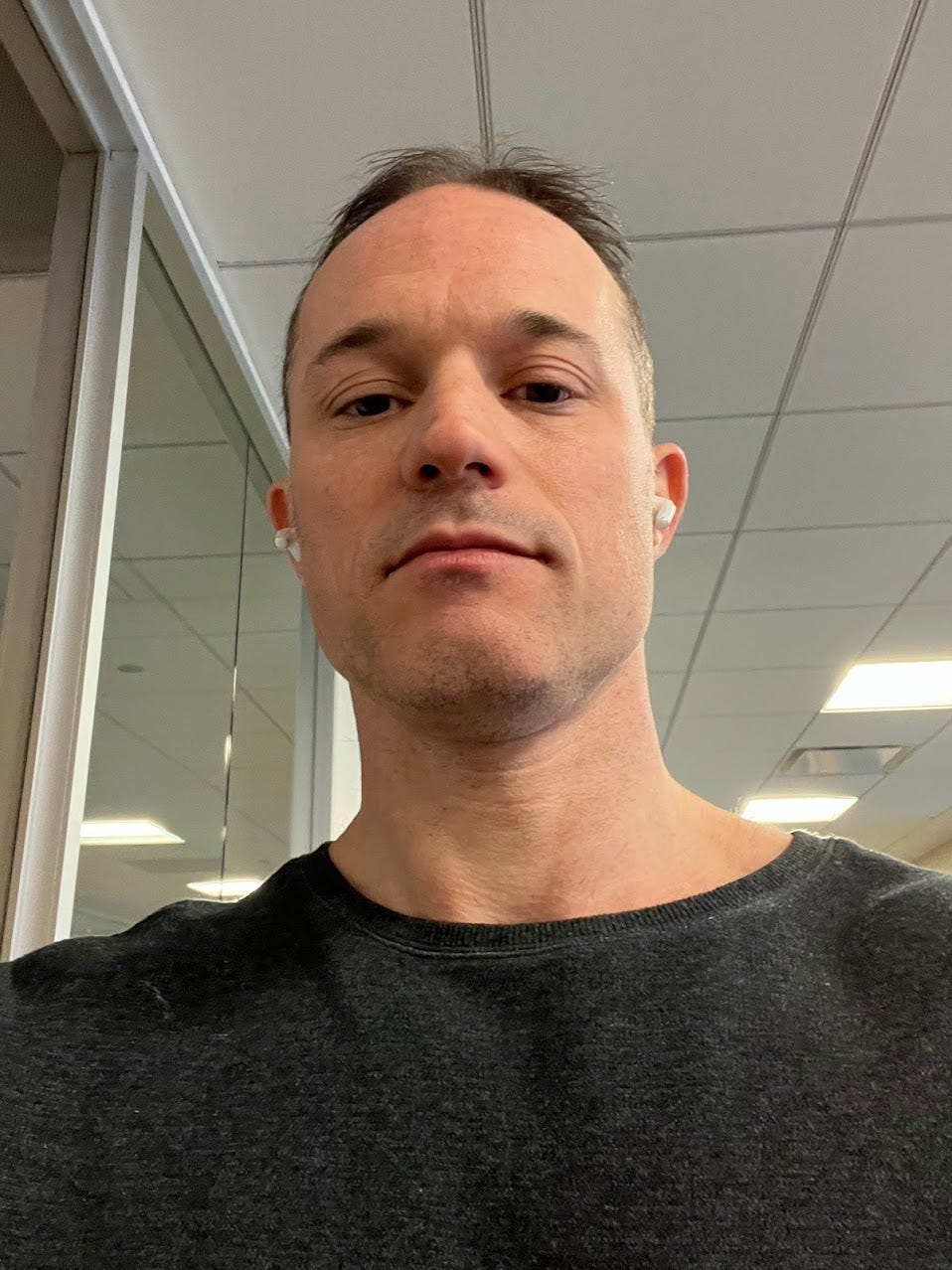

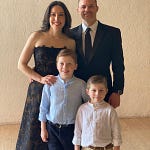

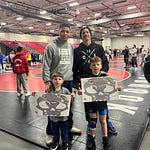
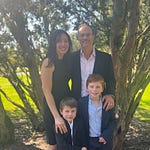




Share this post